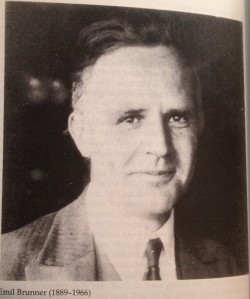One should draw from the source and diligently read the Bible. For a man who knows the text is also an extraordinary theologian. One passage or one text from the Bible is worth more than the glosses of four writers who aren’t reliable and thorough.
Suppose I take the text, ‘Everything created by God is good’ [I Tim. 4:4]; food, marriage, etc., are created by God; therefore [they are good], etc. The glosses contradict this; Bernard, Dominic, and Basil wrote and acted otherwise. But the text itself overcomes the glosses.
The dear fathers were held in high esteem; meanwhile what they did to the Bible was wrong. Ambrose and Basil were quite dull, and Gregory Nazianzen was accused of writing nothing honestly about God in his poetry and songs. — Martin Luther
Totally right.




You must be logged in to post a comment.